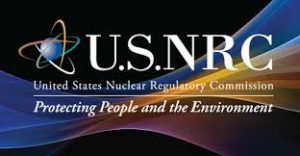ABR leadership held a webinar and Q&A last week to share information about the Board’s recent decision to discontinue including Authorized User-Eligible (AU-E) designations on ABR certificates issued after December 31, 2023.
 The recording of that session is available here. A condensed version can be found here.
The recording of that session is available here. A condensed version can be found here.
To allow time for our candidates to adjust, the ABR has made this announcement more than 18 months in advance. For residents anticipating board certification by December 31, 2023, there is no change in record-keeping or document submission to the ABR.
The following FAQs provide additional information about this transition.
What is “Authorized User-Eligible (AU-E)”?
This is an ABR certificate designation that allows a candidate to submit training and experience documentation to the ABR as part of the process for eventually requesting, if needed, the Authorized User designation from the Nuclear Regulatory Commission (NRC).
What is an “Authorized User” [of Radioactive Materials]?
This is a designation by the NRC for an individual who meets the training and experience requirements and is added to the institution/facility/practice upon request and approval of the required credentials. Many radiologists are not Authorized Users. “A person named as an authorized user on an NRC license is responsible for ensuring that radioactive materials are handled and used safely and in accordance with NRC regulations and the terms and conditions of the NRC license.” https://www.nrc.gov/about-nrc/radiation/protects-you/hppos/hppos145.html
Why has the ABR decided to stop issuing AU-E designations?
- It is outside the defined focus of the ABR’s mission.
- It diverts resources from fundamental objectives (e.g., refinement of remote exams, high reliability customer service).
- A direct pathway exists with the Nuclear Regulatory Commission (NRC) and Agreement States. (An Agreement State has signed an agreement with the NRC authorizing the State to regulate certain uses of radioactive materials within the State).
- An individual may be an AU without being board certified. Conversely, an individual may be board certified without being an AU.
When will these changes be implemented?
The ABR will discontinue including AU-E designations on certificates issued after December 31, 2023. Candidates in all disciplines who receive initial board certification before that date and meet other criteria, such as passing the Radioisotope Safety Exam (RISE) for DR and IR/DR, will receive AU-E on their certificates.
What ABR certificates are impacted by this change?
All ABR specialty certificates are impacted. AU-E designations on ABR certificates are diagnostic radiology (AU-Eligible), interventional radiology/diagnostic radiology (AU-Eligible), radiation oncology (AU-Eligible), diagnostic medical physics (RSO-Eligible), nuclear medical physics (RSO-Eligible), and therapeutic medical physics (AMP-Eligible).
Where can I find information about becoming an NRC Authorized User?
Detailed information about the training, experience, and documentation required to become an NRC Authorized User is available on the NRC website.
If a candidate is board eligible but not board certified, can they become an NRC Authorized User?
Yes. ABR board certification is not a requirement to become an NRC Authorized User.
Does the ABR require residency programs to keep NRC-related training records for a certain period of time?
No. The ABR does not require residency programs to keep NRC-related training records. However, it would be in the best interest of the residents and programs to retain these records to help those interested in becoming an NRC Authorized User.
As a diagnostic radiologist, may I interpret nuclear medicine/nuclear radiology studies without being an AU?
Yes, if granted practice privileges to do so.
Do DR and IR/DR residents still need to do 700 hours of training in Nuclear Radiology?
Yes. The ACGME (i.e., “residency”) requires 700 hours.
Will the Radioisotope Safety Exam (RISE) still be given as part of the Qualifying (Core) and Certifying exams for DR and IR/DR?
The exam content that makes up the RISE is an integral part of the domain of diagnostic radiology and interventional radiology, so there are no plans to change those questions in the exams. However, starting in 2024, that part of the exam will not be scored separately. The questions will continue to be scored toward the overall exam score. Pass rates on the Qualifying (Core) and Certifying exams will not be affected by this change.
What is the last date for DR or IR/DR diplomates to take the “make-up” RISE to get AU-E added to their certificates?
The “make-up” RISE will be offered in January 2023 and December 2023. Thereafter, it will no longer be offered.
If I’m completing my training this year, but I’m not worried about AU-E, does the ABR require submission of the forms?
No. This has never been a requirement for ABR board certification.
Is there a change to the required documentation (record-keeping) by the residency program?
No. For DR and IR/DR, ABR Forms A and B will no longer be submitted to the ABR as of June 2023. For radiation oncology, the Oral I-131 and Parenteral Administration Log will no longer be submitted to the ABR. However, residents and programs should continue to be consistent with meeting RRC and NRC requirements. The graduate may request that the program complete and attest to their training and experience in their NRC Preceptor Statement; the documentation requirements are very similar to what is currently provided to the ABR. The government form looks different, but the information needed for completion is very similar to that needed for completion of the ABR forms.
Is documentation still needed for the ABR 16-Month Nuclear Radiology Pathway or Nuclear Radiology/Nuclear Medicine Fellowship?
Yes. The documentation requirements for the 16-month pathway and the nuclear radiology/nuclear medicine fellowship pathway will be unchanged; however, the documentation will only be used to determine eligibility for the Nuclear Radiology Subspecialty Exam. This documentation will not be used for AU-E designation after 2023.


